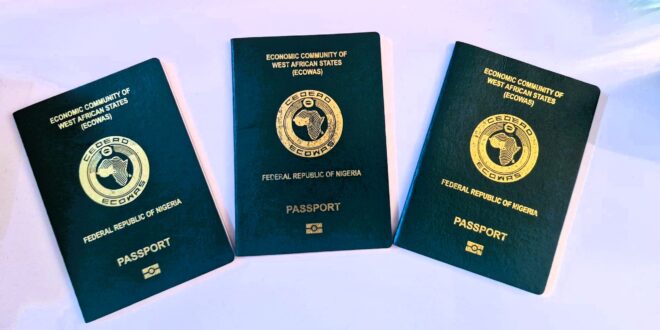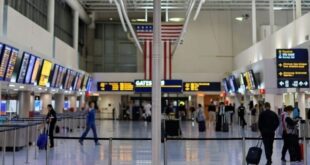The Federal Government of Nigeria has announced a sharp increase in the fees for obtaining the Nigerian international passport. The new pricing structure will take effect on 1 September 2025, according to a statement released on Thursday by a spokesman for the Nigeria Immigration Service (NIS).
The increment is tied to the rollout of the new “Nigerian Standard Passport,” which promises enhanced security features and greater durability, the NIS said.
New Fee Structure for Applications in Nigeria
-
32-page passport (5-year validity): ₦100,000 (previously ₦25,000)
-
64-page passport (10-year validity): ₦200,000 (previously ₦70,000)
This represents a 300–400% increase, a rise many critics say will place a heavy burden on ordinary Nigerians. Civil society voices warn that such steep fees could effectively deny millions access to a fundamental travel document, casting doubt on the government’s assurance that passport services will remain accessible to all.
Why the Hike?
The NIS argues that the revised fees are necessary to “ensure the quality and integrity” of Nigeria’s passport system. The upgraded booklet reportedly includes:
-
Advanced biometric data chips
-
Polycarbonate data pages, similar to those used in European passports
-
Sophisticated holograms to curb forgery and identity theft
The improvements align with global standards set by the International Civil Aviation Organization (ICAO) and are seen as an effort to boost Nigeria’s international image while potentially easing travel restrictions for its citizens. The government insists that moving the NIS towards a self-funding model will guarantee a steady supply of booklets, reduce corruption and streamline issuance times.
Diaspora Exempt from New Tariffs
For Nigerians abroad, application fees remain unchanged:
-
$150 for the 32-page booklet
-
$230 for the 64-page booklet
This is a relief for the diaspora community, which has long complained of high costs and cumbersome application processes at embassies and consulates.
Long-Standing Challenges
The Nigerian passport issuance process has long been marred by shortages of booklets, protracted delays and a thriving illegal market in which applicants are forced to pay “express fees” to touts and corrupt officials. It is hoped that the recent fee increase will address these persistent challenges.
Kola Tella, Lagos
 THE AFRICAN COURIER. Reporting Africa and its Diaspora! The African Courier is an international magazine published in Germany to report on Africa and the Diaspora African experience. The first issue of the bimonthly magazine appeared on the newsstands on 15 February 1998. The African Courier is a communication forum for European-African political, economic and cultural exchanges, and a voice for Africa in Europe.
THE AFRICAN COURIER. Reporting Africa and its Diaspora! The African Courier is an international magazine published in Germany to report on Africa and the Diaspora African experience. The first issue of the bimonthly magazine appeared on the newsstands on 15 February 1998. The African Courier is a communication forum for European-African political, economic and cultural exchanges, and a voice for Africa in Europe.



































